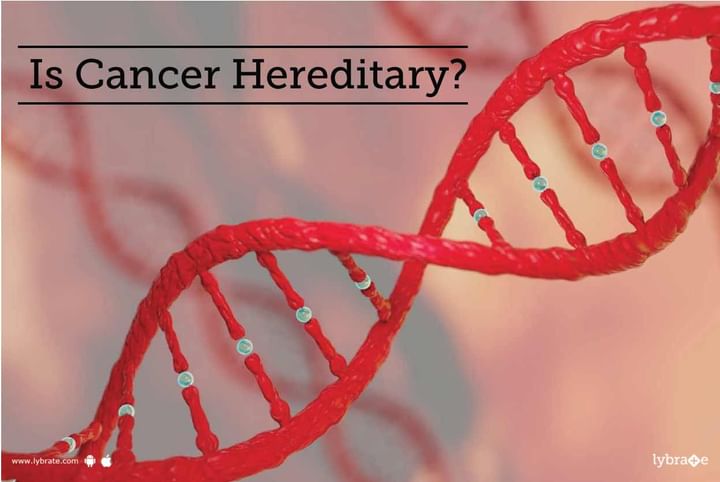Is Cancer Hereditary?
Cancer is a difficult condition to live with, which is why most people take steps to prevent the disease. Following a healthy lifestyle is essential to avoid cancer, but what if the disease is in your genes?
Some people are genetically predisposed to cancer. If cancer is present in your family history, then you might be at a higher risk of suffering from the same. However, not all cancers are hereditary. Cancers including prostate, colorectal, breast and ovarian cancers are genetic and have the highest chance of affecting you, if someone in your family has or had them.
What do your genes have to do with cancer?
Cancer occurs due to genetic mutations in certain parts of the body. Some of these mutations occur naturally, as you age. Such mutations are somatic mutation and are not passed down from your parents. However, other mutations of the cells, called germline mutations occur as a direct result of your inheritance from parents.
However, even if you have such mutations in the body, there is no guarantee that you will suffer from cancer. It just means that your risk of suffering from such a disease is higher than people who do not have these mutations.
How to determine if you have a genetic predisposition to cancer?
Genetic testing and counselling is the only way to deal with the cancer risk you inherit from your family. Genetic testing is essential if you have a family history of cancer and you want to understand how likely you are to suffer from the same condition.
Genetic counsellors will help you understand the results of genetic testing. It is important to remember that the presence of a mutation in the body does not mean that you will suffer from cancer. Many people with such mutations go on to live a completely healthy and cancer-free life.
The purpose of genetic testing for cancer is to simply help you stay alert. If you do find hereditary cancer-causing mutations in the body, you should undergo cancer-screening tests regularly.


+1.svg)
